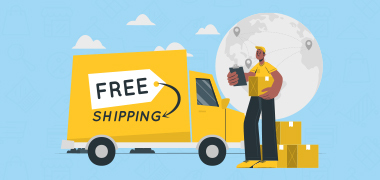If you want to expand your business beyond boundaries, multilingual support is one of the first and foremost requirements. Providing multi-language support gives a number of benefits like:
– Better and consistent shopping experience to customers from different countries across the country.- Enhanced personalization by letting customers view the store in their native languages.
– Expansion of customer base by engaging customers from across the globe.
– High credibility by making international customers feel closer to your brand and enhancing transparency;
Which makes a Language Switcher app of great importance for estore owners.
But before jumping into the multilingual support, read on to know the points you need to keep in mind while running a multilingual store.
Things to Consider While Selling in Multiple Languages
Translation App – Make sure that you have a language switcher app that provides support for multiple languages that your estore supports.
Theme Compatibility with Multilingual Support – The store theme you choose should be compatible with the multilingual support feature. Like for Shopify, the non-updated themes that are incompatible and can’t support Shopify multiple languages will generally use relative URLs in their liquid code.
In such a scenario, these relative URLs won’t work if a user searches for your website in a language other than the default language.
Limit of Language Support – If you use Shopify basic plan, you can translate your store into up to 5 different languages. And if you use Shopify Plus, you can translate your store into 20 different languages. Similar rules apply to other platforms as well, so make sure to check out the limitations and buy plan accordingly.
Automatic Creation of Unique URLs – Once you publish a language, customers can browse your website and check out in that language. A unique URL (or locale) gets created for all translated pages in your store after you publish a language.
For instance, if you create a domain www.mystore.com and add French to your store, the URL www.mystore.com will get auto-created to www.mystore.com/fr. If you unpublish French again, all /fr links in your store will become 404-redirects.
Support for Language-Wise Domains – At present, Shopify doesn’t support unique domains for different languages. For instance, you cannot create fr.mystore.com for the French language. So, make sure to check out for this limitation before you invest in a language translator.
Auto-Detection of Metas and hreflang Tags – Shopify automatically adds meta and hreflang tags to assist Google (or any other search engine) in detecting different languages and index the localized pages in your store speedily. Check this requirement for your platform as well.
Multilingual Sitemap – Shopify supports the generation of the website sitemap only in the primary language of your store always and doesn’t allow its translation. Having a multilingual sitemap is necessary for international SEO. So, look out for this limitation as well.
There are a number of extensions that can help you with store translation for Shopify, Magento, etc.
However, make sure that the extension or app you choose is native to your estore platform. Only then can a language translation benefit you in a true manner as mentioned above.
But why Native Language translation?
Benefits of Native Language Translation
Seamless Integration
A native translator app integrates seamlessly with your store’s Translation API and works smoothly with its multilingual support feature.
Higher Loading Speed
All the translated resources are stored in the platform data storage itself instead of separate cloud systems. This prevents any external backend that can lead to site crash or slowdown.
Enhanced SEO
As there are no changes to be made in the liquid codes of your store to support multiple languages, the site loads faster. Further, language-specific storeviews make the store more engaging and provides them with visibility on search engines separately. This helps enhance the site SEO that otherwise would get affected by slow loading speed.
Now that you know about the benefits of multi-language support and the native translation feature, read on to know how our AppJetty Language Translator for Shopify can be a good option for your Shopify store.
Features of AppJetty Language Translator
Simple Translation Backend Interface
Our app enables you to store the different product objects (variants and options) in a single product resource for every product. A single tap is all that you need to complete translation. Language translation management not only is simple but also faster.
Complete Control over Final Shopify Language Translation
With its What You See is What You Get (WYSIWYG) editor, you will have full control over the final translated content.
Manual and Automated Translation using Google API
You can store components manually or automatically using Google API. Also, you can stay updated about the translation status of every individual component in your store. In case you own a big store with a large number of store components, bulk automatic translation is highly beneficial as it saves your time and energy.
Compatible with all major SEO apps
With the ability to store content and create language-specific domains with the native Shopify multi-language support, you can help Google to recognize your site as SEO friendly and boost your international SEO.
Ready to cross borders with Shopify Language Translator?
It is not a luxury to have multilingual store. Now it has become a necessity. Ready your store to win all the battles with your competition by going international with our Shopify language translator.
If you have any queries or integrate it, contact us at [email protected] and our team will revert to you within 24 seconds.
All product and company names are trademarks™, registered® or copyright© trademarks of their respective holders. Use of them does not imply any affiliation with or endorsement by them.





